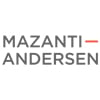-
What are the key rules/laws relevant to M&A and who are the key regulatory authorities?
The Brazilian system is based on the civil law tradition and, as such, relies on codified sets of laws to regulate several legal fields. With respect to company law, the relevant provisions are found essentially in the following statutes and regulations:
i. Brazilian Civil Code
Implemented by Federal Law No. 10,406 of January 10, 2002, as amended (“Brazilian Civil Code”), the Brazilian Civil Code sets out specific guidelines regarding various types of business organizations, including private limited liability companies and non-profit legal entities (associations, foundations, and cooperatives).
ii. Corporations’ Law
Federal Law No. 6,404 of December 15, 1976, as amended (“Corporations Law”), applies specifically to legal entities incorporated in the form of stock corporations and regulates the formation, organization and dissolution processes related to such entities.
The Corporations Law may also be applied in a subsidiary manner to limited liability companies, if the shareholders so decide in the relevant articles of association.
iii. Brazilian Antitrust Law
Federal Law No. 12,529 of November 30, 2011, as amended, sets forth the main rules and principles governing the antitrust system in Brazil (“Brazilian Antitrust Law”). Responsibility for enforcing the Brazilian Antitrust Law rests with the Administrative Council for Economic Defense (CADE), a governmental agency in charge of analyzing mergers and anticompetitive/monopolistic behavior.
iv. Specific Regulations
a) Rules Enacted by Brazilian Securities and Exchange Commission (“CVM”)
Publicly-held corporations are also subject to specific regulations issued by CVM.
b) Rules Enacted by the Brazilian Stock Exchange (“B3”)
B3 has created differentiated listing segments, with rules setting out corporate governance practices and transparency requirements in addition to those already established under Brazilian corporate legislation. The adherence to the listing segments better advertises the company’s efforts to improve its relationship with its investors and increases the potential for asset value appreciation. This adherence is voluntary and must be approved by B3.
-
What is the current state of the market?
The Latin American M&A landscape in 2024 presented a study in contrasts, as evidenced by TTR Data’s recent annual report. While deal volume registered a 16% decline year-over-year, aggregate value surged by an equivalent percentage, signaling a critical shift towards higher-value, strategic transactions. Brazil, as the region’s bellwether, continued to dominate both deal volume and aggregate value, underscoring its enduring appeal to investors. The observed economic stabilization across key markets in the region also played a decisive role in driving this value-centric trend.
Focusing specifically on Brazil, the market’s resilience in 2024 is particularly noteworthy. Following a period of political and economic recalibration in 2023, characterized by governmental transitions and significant reform proposals, Brazil witnessed a robust resurgence. This recovery, marked by a 20% increase in aggregate deal value, underscores a maturation of the market and a renewed confidence among both domestic and international investors. The emphasis on strategic transactions, rather than sheer volume, reflects a more discerning and sophisticated investment climate.
Looking ahead to 2025, several factors suggest a continued positive trajectory for the Brazilian M&A market. The ongoing stabilization of macroeconomic indicators, coupled with the expected government’s commitment to fiscal discipline and infrastructure development, is likely to attract substantial foreign direct investment. Furthermore, the burgeoning sectors of energy, technology, and agribusiness present compelling opportunities for strategic acquisitions and joint ventures. We anticipate a heightened demand for specialized legal counsel, as sellers navigate increasingly complex deal structures and buyers conduct rigorous due diligence in a competitive environment. The ability to anticipate and mitigate regulatory risks, coupled with a deep understanding of local market dynamics, will be paramount for successful deal execution. In essence, while the global economic climate may present uncertainties, Brazil’s strategic positioning and robust domestic market offer a compelling narrative for M&A activity in 2025 and beyond.
-
Which market sectors have been particularly active recently?
The M&A market in Brazil boasts a longstanding history of robust activity, driven by companies’ pursuit of growth, consolidation, and expansion. Key factors, such as the country’s economic stability, regulatory framework, financing conditions, and investor sentiment, play a significant role in shaping the landscape. Brazil stands as the most active M&A market in Latin America and ranks among the busiest globally in recent times. Recent high-profile deals, illustrate the strong growth prospects and investor interest in the region, despite occasional economic fluctuations. These factors, along with Brazil’s pivotal position in the global market, make it an essential hub for cross-border M&A activities.
The energy, infrastructure, agribusiness, and technology sectors (especially focusing on healthcare solutions and the financial market) are expected to remain the primary areas of investment in Brazil.
-
What do you believe will be the three most significant factors influencing M&A activity over the next 2 years?
As of 2024, we have seen the following three trends emerging in M&A transactions in Brazil:
Balanced bargaining power between Buyers and Sellers
Traditionally, LatAm has been a favorable landscape for buyers, who often encountered little resistance when proposing deal conditions to otherwise less prepared sellers. This was especially the case in mid-market and family-owned businesses. In those transactions, buyers typically conduct thorough due diligence, and then parties engage in high level discussions regarding valuation and have few rounds of contract negotiation.
But, in recent years, sellers have become more knowledgeable about M&A processes and have actively sought support and advice from top-tier financial and legal experts. As a result, negotiations are increasingly centered around financial intricacies, such as Quality of Earnings and Quality of Debt adjustments, as well as the relevance and impact of identified contingencies and risk allocation.
It is likely too early to conclude that the market has become “seller-friendly”, but recent years have shown that the bargaining power between sellers and buyers is becoming more balanced. Players from both sides can expect – and should be prepared for – transactions to feature sophisticated sellers, armed with technical understandings of the transaction, resulting in more complex negotiations.
The search for deal certainty and limitation of liability
In light of global market instability – as well as the increased bargaining power of sellers discussed above – LatAm negotiations are placing greater emphasis on deal certainty and limitation of liability. Sellers are pushing for fewer conditions precedent between signing and closing and are less inclined to accept structures that affect readily available cash at closing, such as escrows and holdbacks. Conversely, buyers have been required to create alternative dealing structures, looking, for example, to directly discount certain contingencies from the purchase price or agree on specific indemnities that are more easily enforced against sellers.
As a result, negotiations regarding collateral and indemnification limits are gaining more importance inM&A deals. In Brazil, for example, the typical 100% indemnification cap, once considered “market standard”, is becoming less prevalent. Additionally, sellers are increasingly rejecting generic pre-closing indemnifications and long-term securities.
For buyers, this shift in negotiation dynamics will require them to adapt their strategies to secure optimal risk allocation. Enhancing due diligence, tailoring solutions, and emphasizing deal value are some of the tools that may assist buyers in navigating negotiations with more educated and demanding sellers.
Completion Accounts versus Locked-Box
Historically, completion accounts were the prevailing pricing mechanism in LatAm. Completion accounts utilize enterprise value as a basis to establish the purchase price, and the final consideration is determined post-closing based on actual figures (mostly net debt and working capital) at the time of closing. Under this mechanism, the risks and benefits of the target company are transferred to the buyer upon closing.
By contrast, European-based M&A transactions have historically preferred to use what is called a “locked-box” pricing mechanism. Here, both enterprise value and equity value are predefined based on audited financial statements of the target company prior to transaction closing. From the locked-box date and until the closing date, sellers are prohibited from extracting value from the business, as the risks and benefits of the target company are transferred to the buyer on the locked-box date, preceding the closing.
The locked-box mechanism requires a more detailed financial due diligence of the target company, but it also provides greater price certainty and avoids complex post-closing review procedures, which tend to benefit both buyers and sellers. Additionally, for private equity sellers, the locked-box mechanism enables funds to be remitted to investors at closing without the need for retention to ensure price adjustment.
In recent years, we have seen an increase in the use of locked-box mechanisms in Brazil, mostly due to the increase in cross-border deals involving Europe and to the interest in maximizing cash available at closing. While the choice of pricing mechanism should be tailored to the specifics of each deal and evaluated on a case-by-case basis, the trend towards greater demand for price certainty and accessible cash suggests that locked-box is likely to continue gaining popularity in both domestic and regional LatAm transactions.
-
What are the key means of effecting the acquisition of a publicly traded company?
The acquisition of a publicly traded company may be effected as follows:
- Acquisition of the share control through a private transaction conditioned to a takeover mandatory offer due to the transfer of control of a Brazilian listed company to be launched by the buyer to the remaining holders of free float voting shares for a price equivalent to at least 80% of the price paid by the buyer to the former controlling shareholder (Oferta Pública de Aquisição por Alienação de Controle). Depending on the segment of B3 on which the company is listed, and on the provisions of the bylaws of the company, the public offer may also have to be made to holders of the non-voting shares and the price to be offered to the free float may reach 100% of the price paid for each voting share that is part of the share control. Alternatively, the buyer may offer the minority shareholders the option to remain as shareholders upon paying them the difference between the market value of the shares and the amount paid for each voting share forming part of the share control.
- Voluntary public takeover offer for the acquisition of the share control of a Brazilian listed company, to be launched by the potential buyer aiming to acquire free float shares in the market in a sufficient number to acquire share control (Oferta Pública de Aquisição para Aquisição de Controle de Companhia Aberta).
- Voluntary public offer for the acquisition of shares of a Brazilian listed company, to be launched by the potential buyer aiming to acquire free float shares in the market (Oferta Pública de Aquisição Voluntária).
- Takeover mandatory offer due to the increase in the controlling shareholder’s interest in a Brazilian listed company. Currently, such mandatory offer applies in case the controlling shareholder wishes to acquire more than one-third of the free float shares. As of July 1st, 2025, the mandatory offer will be applicable in case the acquisition results in a reduction of free float shares of the same class and type to a level below 15% (Oferta Pública de Aquisição por Aumento de Participação).
- Mandatory public offer for the acquisition of the totality of the Brazilian listed company’s shares, to be launched by the controlling shareholder or the company aiming to cancel the company’s registry as a listed company (Oferta Pública de Aquisição para Cancelamento de Registro).
- Voluntary public offer for the acquisition of shares already covered by another (a) public offer filed before CVM, or (b) public offer not subject to filing before CVM and whose notice has already been published, to be launched by a third-party other than the original offeror or person linked to it and for a price equivalent to, at least, 5% higher than the price offered to the original public offer. As of July 1st, 2025, public offers not subject to filing before CVM (item (b) above) will not be contemplated in this type of public offer (Oferta Pública de Aquisição Concorrente).
-
What information relating to a target company is publicly available and to what extent is a target company obliged to disclose diligence related information to a potential acquirer?
Under Brazilian law there is no obligation to perform a due diligence, nor to disclose diligence related information to a potential acquiror.
However, basic information on all companies (such as by-laws and minutes of shareholders’ meetings), whether private or publicly owned, is available online, for example in the relevant Board of Trade websites. For publicly traded companies, a large amount of information is made available on the company’s website and/or the CVM website, such as:
- audited financial statements accompanied by a summary of the annual report and statement of the officers responsible for requesting the financial statements;
- quarterly accounting information;
- Reference Form (CVM form with complete information on the company);
- releases on relevant facts that may impact the corporation’s shares trade price, upon occurrence; and
- minutes of shareholders’ meetings, board meetings and corporate acts in general, upon occurrence.
-
To what level of detail is due diligence customarily undertaken?
It is market practice to share as much information as may be deemed relevant, but the scope will remain determined by seller and target, and the level of detail will depend on the negotiations between the parties, as well as the deal type and size.
-
What are the key decision-making bodies within a target company and what approval rights do shareholders have?
Firstly, it is important to highlight that, although the Brazilian Law sets forth other types of companies, the Brazilian companies usually adopt the form of a limited liability company (Sociedade Limitada) or of a corporation (Sociedade Anônima).
The Sociedade Anônima is managed by its officers, who run the day-to-day operations of the corporation, and, in certain cases, also by a board of directors, which is responsible for making major business decisions and overseeing the general affairs of the corporation. The Sociedade Anônima may be a publicly traded company and offer its securities for sale to the general public, being mandatory for the publicly-held companies to have a board of directors.
The Sociedade Limitada is managed by its officers, who run the day-to-day operations of the company, and may also have a board of directors, which, if appointed, will be responsible for making major business decisions and overseeing the general affairs of the company. No public subscription or participation in the capital is allowed and the Sociedade Limitada cannot publicly trade its quotas or list them on a stock exchange.
In any case, (i) the management structure of the corporation/company, as well as the responsibilities of each management organs and any limitations to the powers of the directors and officers, are established in the bylaws/articles of association of the corporation/company; (ii) the directors are elected by the shareholders of the corporation/company, while the officers are appointed by the board of directors or by the shareholders’ meeting, in case the corporation/company does not have a board of directors; and (iii) the bylaws/articles of association (and/or shareholders’ agreement) may create additional management organs with technical roles or intended to advise the directors and officers.
The law establishes certain matters that shall be decided exclusively by the shareholders, such as (i) amending the bylaws/articles of association; (ii) suspending the exercise of shareholder rights; (iii) deciding on the valuation of assets with which the shareholder will contribute to the formation of the share capital; (iv) approving the transformation, merger, incorporation and spin-off of the company, its dissolution and liquidation, as well as electing and dismissing liquidators and evaluating their accounts; and (v) in case of publicly-held companies, deciding on the entering into transactions with related parties, as well as the sale or contribution of assets to another company, if the value of the transaction corresponds to more than 50% (fifty percent) of the company’s total assets’ amount, according to the last approved balance sheet. The bylaws (and/or a shareholders’ agreement) may create additional limitations to the powers of the directors and officers.
-
What are the duties of the directors and controlling shareholders of a target company?
The managers of the target company must (i) exercise the duties that the law and the bylaws/articles of association confer on them to achieve the purposes and in the interests of the company, satisfying the requirements of the public good and the company’s social purpose; and (ii) employ, in the exercise of their duties, the care and diligence that every active and honest man usually employs in managing his own affairs.
The managers of the company are not liable for obligations assumed on behalf of the company, unless they exceed their powers or violate the law, their fiduciary duties or the bylaws/articles of association.
The controlling shareholder (i) must use its power in order to make the company achieve its objectives and fulfill its social purpose, and (ii) has duties and responsibilities towards the other shareholders of the company, the company’s employees and towards the community in which it operates, whose rights and interests must loyally respect and attend to.
In this sense, the controlling shareholder is liable for damages caused by acts carried out with abuse of power, such as (i) steer the company to carry out activities no encompassed or related to its corporate purpose; (ii) promote corporate changes (e.g. termination, conversion, issuance of shares) that may deliberately harm its minority shareholders, members of the management or employees; (iii) deliberately elect an unsuitable person for the company’s management; and (iv) guide the management to perform illegal actions or approve irregular financial statements provided by the management, seeking personal gains.
-
Do employees/other stakeholders have any specific approval, consultation or other rights?
In principle there is no right, except if the by-laws or shareholders’ agreement provide for specific transfer arrangements (preemption rights, right of first offer, right of first refusal, drag long, tag along, etc.).
-
To what degree is conditionality an accepted market feature on acquisitions?
It is common to establish certain conditions precedent to the closing of the transaction, such as clearance by the merger control authorities, shareholders’ approval of the transaction, third parties’ specific consents, reorganization of the target’s business vis-à-vis the transaction perimeter, non-occurrence of material adverse change, amongst others.
-
What steps can an acquirer of a target company take to secure deal exclusivity?
The negotiation of an exclusivity period ensuring that the seller and the target will not engage in negotiations with third parties, subject to break-up fees to be paid by the seller to the buyer in the event of a breach.
-
What other deal protection and costs coverage mechanisms are most frequently used by acquirers?
The execution of a binding term sheet between the parties, providing not only an exclusivity period (please refer to Question #12), but also limited conditions precedent to signing of the definitive agreements, standard representations and warranties, and break-up fees to cover costs in case the deal falls through.
-
Which forms of consideration are most commonly used?
The most common form of consideration in transactions is cash, but it is also possible to pay with credits and/or other assets that can be monetarily assessed, such as securities.
Moreover, as mentioned in Question #4 above, closing accounts mechanisms have traditionally been used in private acquisitions or disposals of equity interests and assets in Brazil. However, in recent years, there has been an increasing trend toward the use of locked-box pricing mechanisms.
-
At what ownership levels by an acquirer is public disclosure required (whether acquiring a target company as a whole or a minority stake)?
Foreign shareholders must disclose the entire corporate chain, including trusts and foundations, up to their Ultimate Beneficial Owner (“UBO”), defined as the individual (natural person) who ultimately controls or holds a “significant influence” over the entity, or one of the entities listed as exceptions in the rules issued by the Brazilian Federal Revenue Service. Failure to comply with such requirement may subject the shareholder to sanctions, such as the suspension of its CNPJ enrollment and restrictions for transactions with financial institutions.
A “significant influence” is presumed whenever the individual (i) holds more than 25% of the entity’s share capital or voting rights, directly or indirectly; or (ii) directly or indirectly, acting individually or jointly, holds or exercises the preponderance in social deliberations and the power to elect the majority of the entity’s managers, even without controlling it.
Consequently, any change in the UBO of a target company following the closing of an M&A transaction shall be disclosed.
In addition, the holding of significant stakes in a publicly traded company is also subject to public disclosure, according to CVM rules.
-
At what stage of negotiation is public disclosure required or customary?
No public disclosure of the negotiations or the completed deal is required if neither party is a publicly traded company. Therefore, the disclosure will depend on the parties’ decision, but it is generally considered market practice to announce the deal after its signing or closing.
-
Is there any maximum time period for negotiations or due diligence?
There is no maximum period for negotiations or due diligence under Brazilian law.
-
Is there any maximum time period between announcement of a transaction and completion of a transaction?
Under Brazilian law, there is generally no maximum period between the announcement of a transaction and its completion. However, certain regulatory approvals may establish deadlines for the completion of the proposed transaction.
-
Are there any circumstances where a minimum price may be set for the shares in a target company?
In private deals, in principle, there is no minimum price, except if the by-laws or shareholders’ agreement provide for specific transfer arrangements.
However, in case the deal involves a publicly traded company, a minimum share price may be set in certain situations, such as in the event of a mandatory tender offer seeking to guarantee minority shareholders’ tag along rights (in which case the minimum price vary from 80% to 100% of the price paid to the shareholders who sold the controlling block, depending on the requirements of the relevant B3 listing segment).
-
Is it possible for target companies to provide financial assistance?
Financial assistance (which under Brazilian law encompasses loans, guarantees, security or reduction of liability) is not specifically regulated by Brazilian law.
However, depending on the legal status of the company (regulated entity, financial institution, publicly or privately held corporation, limited liability company, etc.), as well as the relationship between the grantor and the beneficiary, certain restrictions may apply.
For example, if financial assistance involves a company located outside Brazil, certain foreign exchange regulations may need to be observed. Additionally, the provision of financial assistance by a company to third parties must comply with its bylaws or articles of association, which may require corporate approvals, among other considerations. The financial assistance must also adhere to applicable legislation regarding the matter, including conflict of interest rules.
Given these factors, it is essential to seek advice on a case-by-case basis to determine whether any restrictions apply to a particular scenario.
-
Which governing law is customarily used on acquisitions?
Brazilian law is customarily used on acquisitions of Brazilian target companies.
-
What public-facing documentation must a buyer produce in connection with the acquisition of a listed company?
For purposes of the acquisition of a listed company in Brazil, the buyer is required to formalize the public offering of acquisition of shares by means of a purchase offer instrument.
Referred document must be published in a widely circulated newspaper in the place where the company’s head office is located.
Currently, the purchase offer instrument must contemplate, among others, the following information:
- Number, class and type of shares subject to the public offering;
- Price and payment conditions;
- Main terms and conditions of the offer, including its validity period, which may not be less than 20 days;
- Information regarding the listed company, such as: (a) shareholder composition; (b) economic and financial indicators; and (c) average price of the company’s shares;
- Information regarding the offeror;
- Detailed information regarding agreements, letters of intent and other legal acts related to the acquisition or selling of the listed company’s shares;
- Subordination of the offer to the minimum number of acceptors and, in case their number exceeds the fixed maximum, the form of apportionment among the acceptors; and
- Procedure to be adopted by the accepting shareholders to express their acceptance and effect the transfer of shares.
As of July 1st, 2025, in addition to the information above, the purchase offer instrument must also contemplate, among others, the following information:
- Information regarding the participation of the offeror in agreements regulating the exercise of voting rights in the target company;
- Information regarding the guarantee contracted for the offer;
- Statement presented by the offeror regarding the price per share of the target company in relevant private transactions with independent parties involving the offeror, the controlling shareholder, or related parties in the last 12 months; and
- Statement presented by the offeror and the intermediary that they are unaware of any facts or circumstances not disclosed to the public that may significantly influence the results of the target company or the prices of the shares subject to the public offer.
In addition to the purchase offer instrument and depending on the form through which the listed company is acquired, other public-facing documentation may be requested, such as (i) valuation report of the listed company, in case the launch of the public offer is performed by the company itself, the controlling shareholder, a director or by a person linked to them, except in the event of the acquisition of the share control through a private transaction conditioned to a takeover mandatory offer (Oferta Pública de Aquisição por Alienação de Controle); and (ii) statement of the offeror’s indicating the reasons of the public offer with different prices per class and type of shares.
In the event of the acquisition of the share control through a private transaction conditioned to a takeover mandatory offer, the buyer is required to publish a Material Fact (Fato Relevante) informing the market regarding the transaction. Referred communication must contemplate, at least:
- Buyers’ name and qualification, as well as a brief summary of the sectors in which it operates and activities performed;
- Seller’s name and qualification, including indirect sellers, if any;
- Relevant characteristics and conditions of the deal, including (a) total price; (b) per share price attributed to each type and class of share; and (c) form of payment;
- Purpose of the acquisition, and, in case buyer is a listed company, the expected effects on its business;
- Number and percentage of acquired shares, by type and class, in relation to the total voting capital;
- Existence of any agreement regulating the exercise of voting rights or the purchase and sale of securities issued by the company;
- Statement regarding the intention of cancellation of the company’s registry as a listed company within one year;
- Other relevant information regarding future plans for the conduction of the company’s business, particularly with regard to specific corporate events intended to be promoted in the company, such as corporate restructuring involving mergers, spin-offs or takeovers.
The Material Fact must be published on (a) widely circulated newspapers usually used by the company or on, at least, one news portal website with free access to the integrity of the information; (b) CVM’s website; and (c) company’s investor relations website.
-
What formalities are required in order to document a transfer of shares, including any local transfer taxes or duties?
The ownership of shares issued by a limited liability company (Sociedade Limitada) is reflected in its articles of association, while in the case of a corporation (Sociedade Anônima) is reflected in its corporate books, provided that the corporation’s bylaws may authorize or establish that all of the company’s shares, or one or more classes of them, are maintained in deposit accounts at a designated institution. In the last case, the ownership of the shares is presumed by means of the registration in the share deposit account, opened in the name of the shareholder in the books of the depository institution.
In view of the above, the transfer of shares shall be documented in the corporate books (i.e., share registry and share transfer books) of the corporation (Sociedade Anônima) or in the books of the designated depository institution, notwithstanding any additional requirements established in CVM’a specific regulations regarding publicly-held corporations. In relation to limited liability companies (Sociedades Limitadas), the transfer shall be documented by means of an amendment to the articles of association, which shall be registered with the competent Board of Trade.
Brazilian tax legislation does not provide for transfer taxes to be levied over transfer of shares transactions. It is important to mention, however, that seller may be required to pay capital gains tax over the difference between the tax cost and the realized amount in connection with the sales event.
-
Are hostile acquisitions a common feature?
Hostile takeovers remain relatively rare in Brazil, largely because most public companies are controlled by a single shareholder or a controlling group. However, due to the recent increase in companies with dispersed ownership or minority control, the expectation is that hostile takeover bids will become more common in the future.
-
What protections do directors of a target company have against a hostile approach?
The measures that can be taken by the board of directors to hinder or prevent a hostile bid in Brazil are limited and the decision to accept or deny a takeover offer lies ultimately with the shareholder.
The board of directors of a company can be dismissed at any time by the shareholders, as Brazilian corporate law does not typically allow for staggered boards, a mechanism often used in other jurisdictions to provide board members with longer tenure. The ability for shareholders to dismiss directors at any time limits the board’s ability to prevent hostile takeover bids.
A common defense strategy against a takeover bid is to include provisions in the company’s bylaws that aim to discourage a bidder from passing a certain shareholding level. These may include a requirement that any shareholder owning a certain percentage of voting shares (typically between 10% and 35%) make a public offer to acquire the remaining shares at a specified price, usually set as the higher value determined by various valuation methods, such as market value and discounted cash flow. This type of protection is commonly referred to as a poison pill.
In addition, shareholders’ voting rights may be restricted by provisions in the company’s bylaws and shareholders’ agreements. These agreements may require shareholders to consult with one another and vote their shares in accordance with pre-agreed terms. This mechanism helps prevent any shareholder, even those holding a significant number of shares, from exercising control over the outcome of shareholders’ meetings by casting a majority of votes.
-
Are there circumstances where a buyer may have to make a mandatory or compulsory offer for a target company?
In Brazil, a mandatory tender offer may be triggered in the event of:
- Change of control, upon the direct or indirect acquisition of control of a public company;
- Acquisition of shares by the controlling shareholder; and
- Delisting of a company from the stock exchange, or its conversion into a private company upon the cancellation of its registration with CVM.
In any such events, the tender offer will seek to guarantee the minority shareholders’ rights, with the relevant formal procedures and requirements subject to the Brazilian Corporations Law and the rules issued by CVM and B3.
-
If an acquirer does not obtain full control of a target company, what rights do minority shareholders enjoy?
Minority shareholders have full rights as shareholders, including without limitation voting and financial rights, subscription rights (on a pro-rata basis to their equity) and withdrawal rights (in the event certain corporate transactions are approved, such as conversion, merger, consolidation, spin-off or liquidation of the company). However, specific provisions may be applicable pursuant to the company’s by-laws or shareholders’ agreement, such as rights and limitations arising from different classes of shares.
Additionally, in relation to public companies, the Brazilian Corporations Law provides tag along rights to the remaining shareholders in the event of direct or indirect sale of the company’s control.
-
Is a mechanism available to compulsorily acquire minority stakes?
The squeeze-out of minority shareholders is permitted under Brazilian Corporations Law in the following circumstances:
- Non-payment of Capital Contribution: subject to certain procedures, if a shareholder fails to pay the portion of the corporate capital they had subscribed to, the squeeze-out is allowed.
- Following a Delisting Tender Offer: after the successful completion of a delisting tender offer, if less than 5% of the total shares issued by the company remain in free float, it is possible to implement the redemption of such shares, upon payment of the same price as paid in the offer.
- Redemption of Shares: Shares of one or more classes may be redeemed with the approval of the majority of shareholders holding the relevant class of shares to be redeemed. If not all shares of the class are redeemed, the redemption must be conducted through sortition (random selection).
Additionally, under the Brazilian Civil Code, shareholders of a limited liability company (Sociedade Limitada) may exclude one or more shareholders if the majority believes that those shareholders are jeopardizing the continuity of the company due to acts of undeniable seriousness. This can occur by amending the company’s articles of association, provided that such exclusion for just cause is explicitly allowed in the articles.
Moreover, if drag along rights are established in the shareholders’ agreement (“SHA”) of the company, these provisions enable a selling shareholder to compel other shareholders bound by the SHA to participate in the sale of the company.
Brazil: Mergers & Acquisitions
This country-specific Q&A provides an overview of Mergers & Acquisitions laws and regulations applicable in Brazil.
-
What are the key rules/laws relevant to M&A and who are the key regulatory authorities?
-
What is the current state of the market?
-
Which market sectors have been particularly active recently?
-
What do you believe will be the three most significant factors influencing M&A activity over the next 2 years?
-
What are the key means of effecting the acquisition of a publicly traded company?
-
What information relating to a target company is publicly available and to what extent is a target company obliged to disclose diligence related information to a potential acquirer?
-
To what level of detail is due diligence customarily undertaken?
-
What are the key decision-making bodies within a target company and what approval rights do shareholders have?
-
What are the duties of the directors and controlling shareholders of a target company?
-
Do employees/other stakeholders have any specific approval, consultation or other rights?
-
To what degree is conditionality an accepted market feature on acquisitions?
-
What steps can an acquirer of a target company take to secure deal exclusivity?
-
What other deal protection and costs coverage mechanisms are most frequently used by acquirers?
-
Which forms of consideration are most commonly used?
-
At what ownership levels by an acquirer is public disclosure required (whether acquiring a target company as a whole or a minority stake)?
-
At what stage of negotiation is public disclosure required or customary?
-
Is there any maximum time period for negotiations or due diligence?
-
Is there any maximum time period between announcement of a transaction and completion of a transaction?
-
Are there any circumstances where a minimum price may be set for the shares in a target company?
-
Is it possible for target companies to provide financial assistance?
-
Which governing law is customarily used on acquisitions?
-
What public-facing documentation must a buyer produce in connection with the acquisition of a listed company?
-
What formalities are required in order to document a transfer of shares, including any local transfer taxes or duties?
-
Are hostile acquisitions a common feature?
-
What protections do directors of a target company have against a hostile approach?
-
Are there circumstances where a buyer may have to make a mandatory or compulsory offer for a target company?
-
If an acquirer does not obtain full control of a target company, what rights do minority shareholders enjoy?
-
Is a mechanism available to compulsorily acquire minority stakes?





























